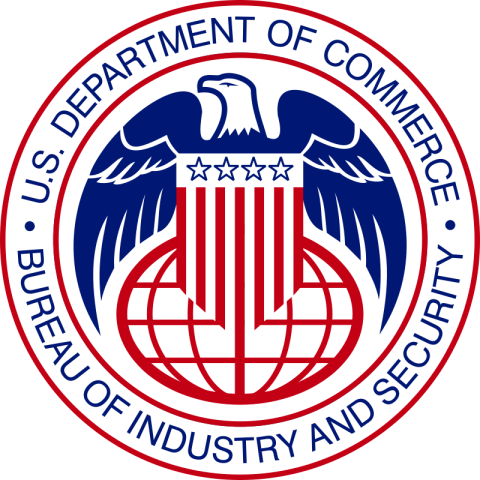Office overview and responsibilities
At the core of its responsibilities, this office serves as a linchpin for the Commerce Department's efforts to prevent the proliferation of weapons of mass destruction and the means to deliver them.
The NFPC takes a multifaceted approach, administering key international arrangements like the Nuclear Suppliers Group, the Missile Technology Control Regime, and the Australia Group, which focuses on chemical and biological controls to ensure that other countries are also engaged in WMD nonproliferation efforts and administering their export control systems in ways comparable or identical to the United States to ensure a level playing field for U.S. exporters in the global marketplace. In addition NFPC manages U.S. unilateral foreign policy export controls and the office plays a crucial role in overseeing industrial compliance with arms control and disarmament treaties, such as the Chemical Weapons Convention (CWC) and Additional Protocol.
The Chemical and Biological Weapons Nonproliferation Controls Division (CBC)
The Chemical and Biological Weapons Nonproliferation Controls Division (CBC) receives and adjudicates applications to export, reexport or transfer (in-country) items that could make a material contribution to the design, development, production or stockpiling of chemical or biological weapons. These items are controlled for “CB” reasons on the Commerce Control List and include certain chemical weapons precursors, toxins, animal and plant pathogens, and certain kinds of equipment and software to test, produce and process them. CBC scientists and technical experts also represent the Department of Commerce at annual and periodic meetings of the Australia Group; an informal group of 42 countries committed to preventing the proliferation of chemical and biological weapons. Through its work in the Australia Group, CBC creates a level playing field for U.S. exporters of items controlled for CB reasons by are controlling the same items according to the same criteria under which those items are approved or denied by the members.
Treaty Compliance Division (TCD)
The Department of Commerce, through BIS, serves as the lead agency for ensuring U.S. industry compliance with the Chemical Weapons Convention (CWC) on the Prohibition of the Development, Production, Stockpiling, and Use of Chemical Weapons and on their Destruction , as well as the lead agency for implementation of the Additional Protocol to the U.S.-IAEA Safeguards Agreement and the International Atomic Energy Agency for the Application of Safeguards in the United States. BIS also participates in activities to strengthen international implementation of the Biological Weapons Convention (BWC).
Human Rights and Embargoes Division (HRED)
The Human Rights and Embargoes Division exercises responsibility for unilateral U.S. export controls related to embargoes, sanctions and special controls including controls pertaining to human rights concerns and State Sponsors of Terrorism. HRED is composed of three matrixed teams of Export Policy Analysts/Licensing Officers responsible for Russia/Ukraine; Indo-Pacific/Middle East/Western Hemisphere; and Advanced Surveillance/Crime Controls (Worldwide).
Nuclear and Missile Technology Controls Division (NMT)
The Nuclear and Missile Technology Controls Division is responsible for the Dual Use items controlled by the Nuclear Suppliers Group (NSG) and the Missile Technology Control Regime. In addition to representing Commerce at these regime meetings. NMT is responsible for the export policy formulation, export licensing and related commodity jurisdictions, commodity classifications for the items controlled by these regimes. NMT also participates in Department of Energy’s Part 810 licensing process for nuclear specific technology division as well as executive branch review for the Nuclear Regulatory Commission’s Part 110 Nuclear item licensing process. This division also reviews the license applications and commodity classifications related to the export of commercial firearms, ammunition, and associated items.
Office leadership

Director, Office of Nonproliferation and Foreign Policy Controls
Learn more
Director, Office of Nonproliferation and Foreign Policy Controls

David Johnston
Learn more
David Johnston
Submit an inquiry
For optimal guidance on BIS rules and regulations, we strongly recommend getting in touch with our team of export counselors. Our committed staff is at your service from Monday to Friday, dedicated to assisting you in achieving compliance and simplifying the intricate realm of exports.


